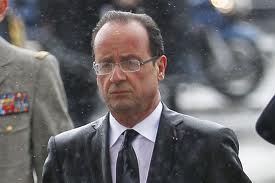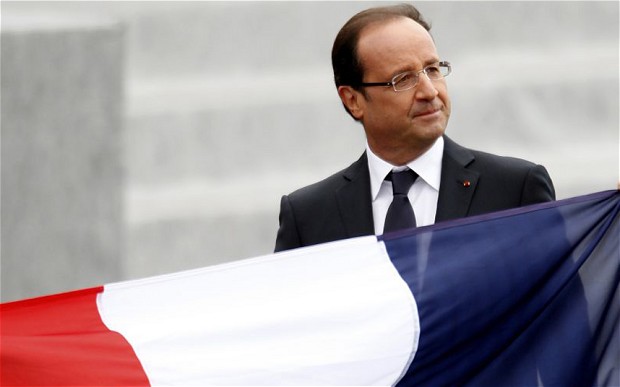French President Francois Hollande was expected Tuesday in the Central African Republic, on the second day of an operation to disarm rogue rebels that has already killed two French soldiers.
French President Francois Hollande was expected Tuesday in the Central African Republic, on the second day of an operation to disarm  rogue rebels that has already killed two French soldiers.
rogue rebels that has already killed two French soldiers.
As the poverty-stricken country's former colonial master led the military effort to restore order after a year of chaos, Washington said it was offering to fly in African peacekeepers.
The French deaths came moments after Paris announced Monday that the capital Bangui had been largely purged of marauding armed groups.
The two paratroopers were fatally wounded while conducting a night patrol in Bangui, the first casualties since France's 1,600-strong contingent deployed last week.
"They lost their lives to save many others," said Hollande, who is to stop in Bangui on his way back from South Africa, where he attended a memorial honoring Nelson Mandela.
A year to the day after Seleka -- a motley coalition of Muslim rebels and foreign warlords -- took up arms, Hollande was to hold talks with their leader turned president, Michel Djotodia.
He was also due to meet Prime Minister Nicolas Tiangaye and deliver a message of encouragement to his troops, a source at the French presidency said.
Among the leaders gathered in Soweto to celebrate Mandela's life was US President Barack Obama, who on Monday urged the transitional Central African government "to arrest those who are committing crimes."
The US also said its military would provide C-17 Globemaster transport aircraft to fly African Union peacekeeping troops from Burundi to the Central African Republic.
They will add to 2,500 African Union peacekeeping troops already on the ground as part of the MISCA force.
The French forces had deployed in the wake of days of horrendous fighting in Bangui in which nearly 400 people were killed. The stench of dead bodies still permeates some areas of the capital.
Most of the clashes were between Christian and Muslim militias armed with guns and machetes.
